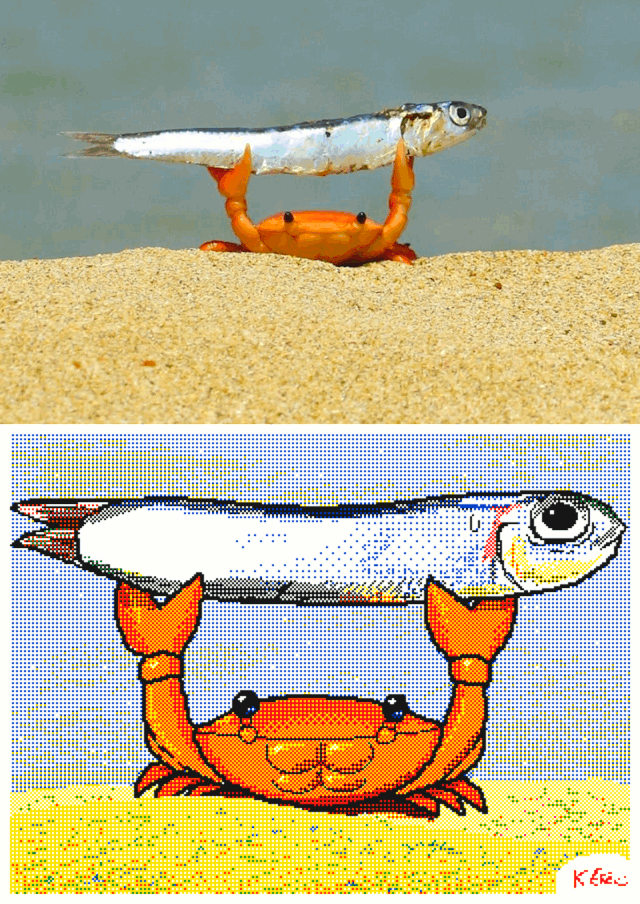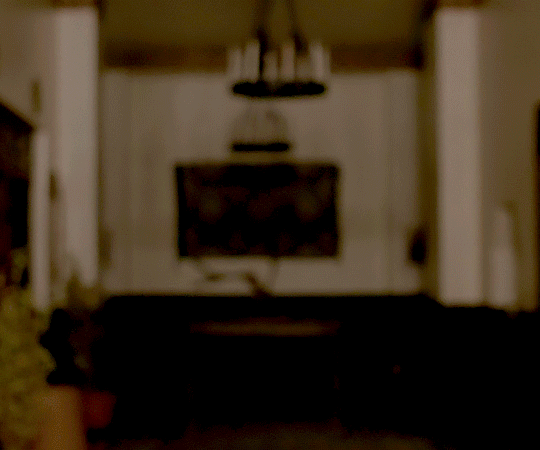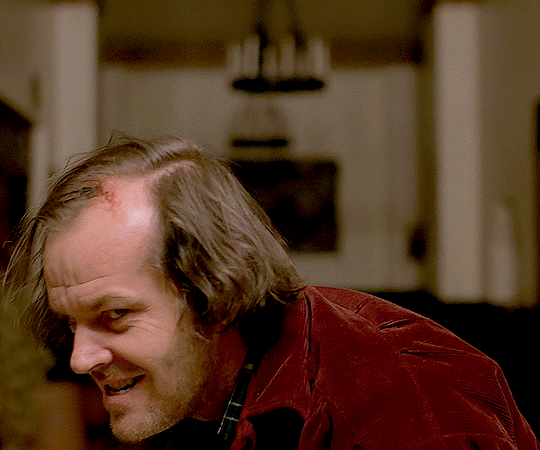Text
I have always felt the main theme of this movie is loneliness and alienation, however hard to say we have only one message here to discuss about.
First we have the sense of loneliness of an introvert driving into madness beginning his journey from a post traumatic stress disorder due to war experience. This is probably the main theme which holds it all together.
Second we have alienation, which here also reveals itself as a very useful tool to make loneliness stand out. You feel the way Trevis feels so constantly surrounded by people who don’t care about him. They’re all living their lives and using him to move from a point to another. All the days taste the same.
Third we have a filthy NYC in 70s and a political critique to that society. Even when he turns into a raged psychopath murdering the first thing standing on his way they make him a hero. He also try to shoot to the symbol of society power and to the reflection of all its values, in his attempt to kill the future president.
The final act where he’s adjusting the rearview mirror doesn’t have a unique meaning. For as I see it they want you to doubt whether he really had a meeting with Betsy or not and if she truly wants him back now that newspapers made a hero of him or he’s just dreaming about this ending.
Just one more thing I noticed which might be all in my mind but��� A sort of contradiction in Trevis actions where he’s really into his hate for society but at the same time when someone ask him what’s the part you hate most he says that he really doesn’t follow what happens on the newspaper. I interpret this as a will to be part of the society without really making the effort to fit in. The suffering of being so deeply misunderstood without caring about the others.
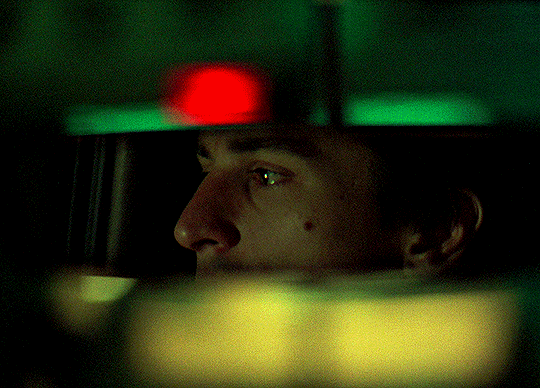

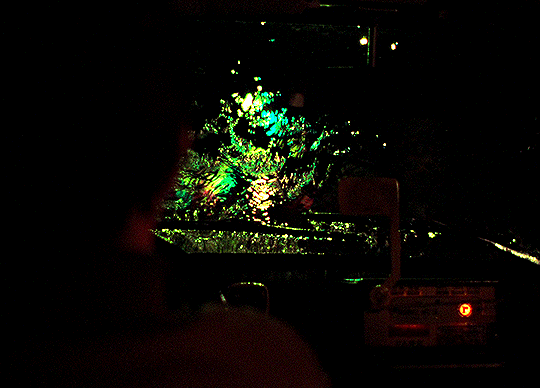

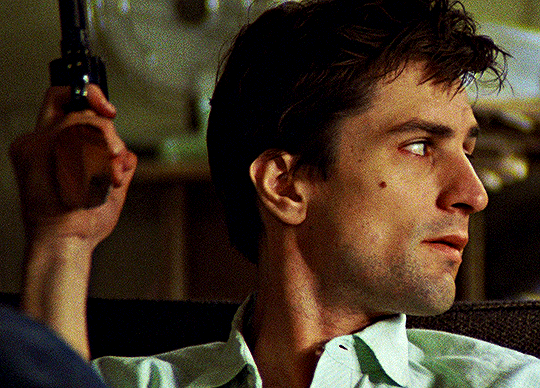

Loneliness has followed me my whole life, everywhere. In bars, in cars... sidewalks, stores, everywhere. There's no escape. I'm God's lonely man.
Taxi Driver (1976) dir. Martin Scorsese
2K notes
·
View notes
Text
A central element here is the ambiguity surrounding Deckard whether is replicant or human. What’s the nature of humanity? It doesn’t matter what Deckard truly is but that the ambiguity makes this line blurry and that there is no clear difference between humans and replicants.

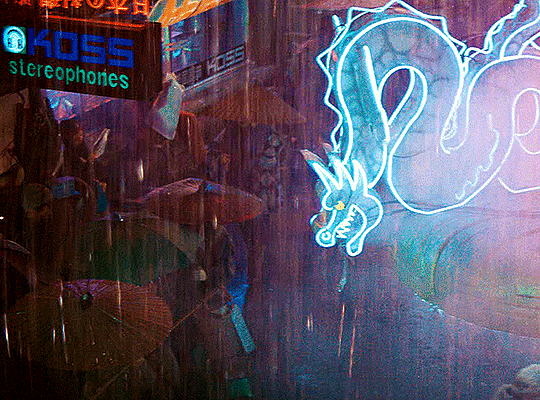
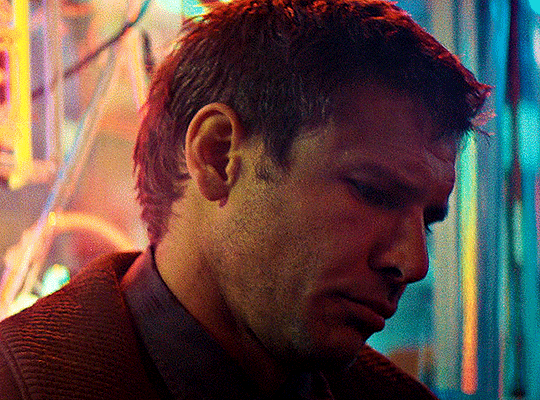
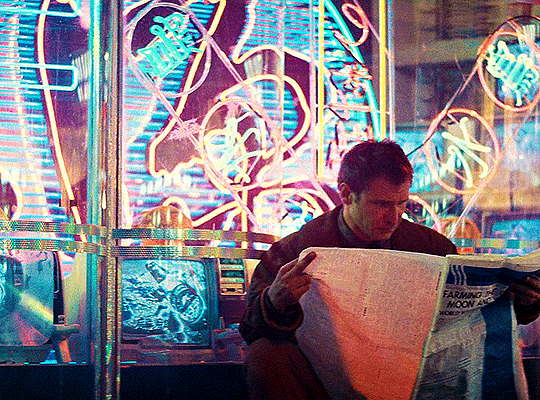
Harrison Ford as Rick Deckard Blade Runner (1982) dir. Ridley Scott
6K notes
·
View notes
Text
What a job you made here! Impressive!
When You Don’t Know What Your Heroes Want, Neither Do You
Having read and heard so much about what made the Star Wars sequels botch and why some fans still have problems with the prequels, these days I was struck with a sudden, very simple thought.
The problem is not only the character’s lack of agenda as such, but how this impacts the viewer’s impression. The thing is that we want to immerse ourselves into another world on watching a movie or tv show; we want our imagination to be tickled to be spirited away into an entirely different world.
I still love the Star Wars classics more than the other movies; they’re not bad and e.g. Revenge of the Sith and The Last Jedi, are actually quite good, but it can’t be denied that they still didn’t match the classic movies in quality and that a lot of their success is due to the fact that the fanbase is enormous and that some will watch almost anything Star Wars related just because.
The narrative task is as simple as it is crucial. We need to understand what the characters actually want; even better, if their desire is decisive to their own well-being, if it clearly is a need and not only a wish or a dream. But with the Star Wars stories which were produced since the classics, characters are often confused or outright in the dark. And as a result, so are we.
As viewers, we want to feel and think with our heroes. We root for those we can identify with; we can hardly be expected to get all excited about people who merely want to prevent things, or who have vague wishes but not personal wants and needs. The Star Wars classics are excellent at this, and they outline the characters, making abundantly clear what they are here for, in a few minutes.
As viewers, we do not need to know why Darth Vader wants to terrorize people; why Leia is a good character, as Luke is. Han at first is only in for the money, but it is clear enough that he is not a villain. Within a few minutes of having met them we have sized them up and know whether we like them or not. We do not need to immerse ourselves intellectually into the world of Star Wars by knowing how the Jedi Order looked like or the old Republic, who the Emperor is, what the Force is etc. We may want to learn about it later, but it’s not necessary to enjoy the story as it is, and to love the characters. The subtext adds to the story’s magic; it is not and does not become boring or annoying because we don’t care for understanding all details, we care for the characters.
The prequels’ and the sequels’ main mistake was to go too much into the details or world-building, at the expense of what to us, as viewers, is of paramount importance if we want to enjoy a story. We need to know what drives the characters if we’re supposed to feel with them.
~ More under the cut ~
Prequels
The Phantom Menace works relatively well because we are aware of the protagonists’ agendas for the most part.
Qui-Gon wants to do the will of the Force, which makes him free Anakin and bring him to the Jedi to be trained, convinced that he is the Chosen One.
Anakin wants to win the pod race, to free the slaves on Tatooine and to explore the galaxy. His mother wants him to be free.

But here’s where things get tricky.
Obi-Wan, a beloved and popular character from the classics, in his youthful impersonation has hardly anything to say, he merely is his master’s sidekick.
Padmé wants to keep her people safe, but she is a healthy, affluent young woman from a powerful background. She acts out of idealism; if she was not a queen, personally she wouldn’t be any worse.
Darth Maul says he wants “revenge” over the Jedi, but it is never said what that revenge is to be for. He kills Qui-Gon and again, it is not said why. (We can only imagine it is to deprive Anakin of the father figure he needs, leaving him with the too young and immature Obi-Wan.)
Palpatine is already working towards taking over absolute power over the galaxy, but again, we don’t know anything about him personally; what made him the way he is, why he wants this kind of power so badly that he will do anything for the purpose.
The Jedi Council is the most disappointing part of the movie: they obviously have no wish but to keep things the way they are.
JarJar is not only irritating due to his quirks but because he is merely a comic relief. We have no idea about what he actually wants in the story, and neither does he.
Attack of the Clones is a weak movie due to the same reasons.
Who ordered Shmi’s abduction and torture, and why? Palpatine, most probably, but that is never uncovered.
Anakin wants to rescue her, but again, he wants to prevent something; he does not actively want something of his own. We e.g. never hear him speak about wanting to save the slaves on Tatooine again.
What does Dooku want, and again, why?
Jango Fett wants a good life for himself and his son, which makes him an interesting character; but he meets his death and his son picks up right where he ended.
A very important scene where Padmé tells Anakin that she laid down her mandate because she wants to get married and have children was, unfortunately, cut from the movie.
Many fans remember this movie mainly as a love story - why? Exactly. Because that Anakin and Padmé are in love and want to be together is the clearest narrative thread in this movie that is packed full of details but leaves us without much actual knowledge about what is happening, and why.
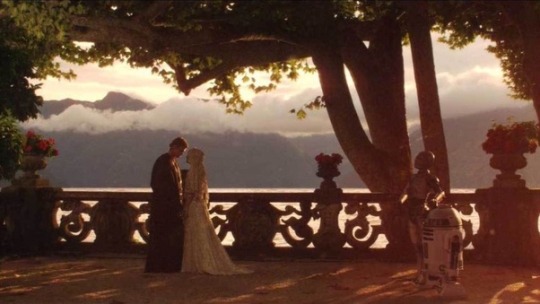
In Revenge of the Sith everyone has an agenda, but except for Palpatine, they all want to prevent things from happening; they have nothing new in mind.
Anakin wants to keep his family safe; Padmé wants the same; the Jedi want to preserve their power, and so on.
On Mustafar, Anakin says to his wife that now they can finally “make things the way they want them to be”, but that is very vague. Also, he obviously never knows that Palpatine groomed him from the very start. His own will seems to be of no importance.
The population of the galaxy hands over power to Palpatine tired of the long war; but we never see anyone mourning loss and death, so that motivation is not really stringent.
Of course, the prequels are a tragedy and we learn that the Jedi are supposed to live for the “greater good” and not to have any personal drive. But if that is one of the causes of their downfall, at least it ought to be said or shown clearly. Also, there is a lot of fatalism at work. But even in that case, it ought to better be shown how the characters fight desperately against fate and in the end are incapable to prevent it.
One of the reasons why Darth Vader is such a popular character is that even if he is of course not likeable, we always are led to understanding him, both with regard to his fate and to his personal wishes. In the end he kills Palpatine, accomplishing his fate by killing the actual mastermind behind the Empire, the archvillain; and in doing so, he also fulfils a personal wish, which is to save his son. This action and both his motivations are clear enough within the scope of minutes. The prequels are nice to fill in the details that led to this moment, but they are not actually needed to understand the story.
Sequels
I remember well, on watching The Force Awakens, how Kylo Ren’s character irritated me. I kept asking myself, “What is the matter with this guy?” He is deeply conflicted - due to what? He killed his own father - why? He only becomes more interesting when it is revealed that he wants Rey more than anything else.

Rey is a passive person waiting in an awful situation although she could run, waiting for her family whom she intimately knows to be dead. She runs from Maz Kanata’s castle; she says to Luke that she wants someone to tell her where her place is.
Finn wants to get away from the First Order. He has nowhere to run to the way Luke did when he chose to go with Ben and become a Jedi.
Poe is devoted to the Resistance and Leia, but where does his loyalty come from?
Holdo is hated by many antis because she is secretive about her aims.
Han and Leia want their son back, but why “back”? What drove him away in the first place? Why are they looking for him only now, years after his fall?
Luke’s aim is to wait for his death. Only shortly before that, he decides to give Rey encouragement, to apologize towards his sister and nephew and to save the Resistance.
Rose wants to help the Resistance and, later, to keep Finn safe. Her character is a major drive to the second sequel film.
Jannah and Zorri - forgettable due to the same reason.
Palpatine - wants to have one person killed and then another.
The sequels, and with them the entire saga, end with Rey, a Palpatine, on the desert dunes both Anakin and Luke ardently wanted to leave. Why? What does she want there?
In-Between
Rogue One is a well-made story but somehow depressing because all the protagonist wants is to do her father’s will. Jyn seems to have no agenda of her own; neither does the rest of her squadron. They all join her because they have nothing to lose.
Solo is a good action film with a feel-good ending because we are always aware of what Han wants: his first motivation is to find and keep his freedom, and when he finally gets the Falcon, that aim is accomplished.
TV Shows
The Clone Wars gets irritating after a while because there is no overarching structure. The Separatists fight the Republic, the Republic aided by the Jedi fights back, yada yada. A nice time filler but nothing to get enthusiastic about.
The Bad Batch has a similar problem. After the war, the five clones have no actual aim in life anymore and all they want is to remain together and keep Omega safe; however, that is no definite aim and although the show is well received, it’s no wonder fans don’t get all excited about it.
The Mandalorian leaves no doubt about its protagonists’ aims. Mando wants to protect his covert, to keep the child safe, then he wants to bring him to his own kind. What the other characters want is also never left in the dark, except for Greef Karga who is an ambiguous figure; but even that changes after a while. The show was a cult among fans even before the first season was fully aired.
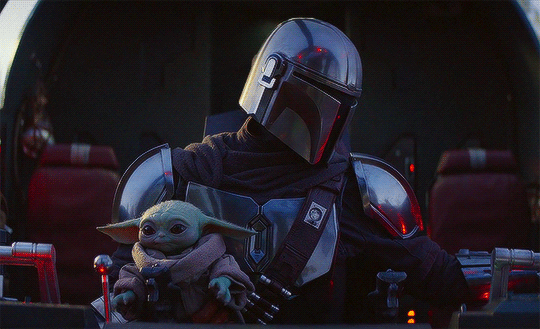
What’s so sad about this problem is that with a little more concise writing, it could have been avoided.
The saga of course has the problem that many fans are not elbows-deep in it, that others believe it’s only about action and outright deny or overlook the deeper themes; many fans simply want a hero who kills the bad guy, saves the world and gets the girl because otherwise they won’t understand it. Which is of course annoying, but can’t be helped. Fans have a right - excuse me - to be stupid, respectively to only want to be entertained and not to spend months or entire years delving into the saga’s themes.
However, simply fleshing out what really drives the characters and why would boost these stories enormously. It’s such a simple thing: any Disney movie makes the characters’ setting and agenda clear within the scope of five minutes. Why in this case they left everything so shrouded, leaving the fans baffled or even hugely disappointed, is beyond me. I have not studied filmmaking but if I did, I would expect such basics to be taught beginning with the first lesson.
Viewers watch movies with their “child brain”, and while it’s not wrong to introduce deeper themes, at least on first viewing I daresay what we all want is to entertained and to actually understand what the story is about. It’s deeply frustrating when we don’t, and such movies or shows never age that well, as good as they may be otherwise.
Personally,
- I don’t need the cliché “hero saves the world, kills the bad guy and gets the girl” to be accomplished
- I don’t watch Star Wars expecting nothing but special-effects-packed, plot-driven action
- I’m fine with a female heroine, Jedi or not, and I never thought that Rey is a Mary Sue
- I know that a villain like Darth Vader can’t be topped and I’m fine with his angsty counterpart
- I never saw the Jedi as almighty, all-wise superheroes and I can live with the fact that they failed; the saga is ultimately not about them but about the Skywalker family, and that’s fine by me
- I don’t need a happy ever after to go on loving and admiring my heroes
- I can accept that someone like Luke Skywalker would go into exile and refuse to join the fight again
- I like the idea that both heroes and villains are human and that there is no clearly definite black / white pattern
- I don’t need to see the Adventures of Han, Luke and Leia in an endless loop, much as I may love them
- I did miss the magic atmosphere of the classic movies in all new ones except for The Last Jedi, but I can accept that not everything can be a fairy tale
- I liked the idea of Kylo’s more fleshed-out redemption arch than in Vader’s case
- I like profound dialogue but it is not a must (in The Mandalorian, we realize that the hero’s aim is to protect his foundling from the moment of their first meeting - they don’t talk, one wears a helmet and the other is a literal puppet).
PLEASE, let us know what the characters are up to. Don’t just leave us in the dark for three movies in a row. Plot twists are fine. Endless confusion is not.
Define your characters by making us understand what they actually want and why, if you don't want your audience to bang their heads against a wall. Thank you.
P.S. If being unclear about what the characters actually desire was aimed at not letting us realize that in the end nobody got anything they longed for: that has failed, too.
46 notes
·
View notes
Text
The novel apparently unfolds as the defence of H.H. to a popular jury, in attempt to justify his actions. Very theatrical, dramatic and intense. We can almost picture him in the middle of a stage while he plays "Lolita, light of my life, fire of my loins. My sin, my soul!". To me in the form also reminds a personal diary or a collection of memories from which to extract a novel. This is because the protagonist is a writer, who seems to keep fragments of what we read inside the drawers of his desk. Or rather writing about feelings lived through which channelling his erotic fantasies, taking them out in art instead of reality.
A founding element of his unhappy condition is to have loved and lost, during his pre-adolescence, Annabel, girl who awakens in him passion and with whom he begins to discover the pleasures of sex. Passion that will never be satisfied because of her untimely death. Flame that, unfortunately, will not be extinguished and that over the years will come to consume him. The trauma blocked his growth, sexual and relational, at that specific time of his life. Until he ends up embodying Annabel in Lolita and Lolita will cure him from this evil.
H.H. tries to show us his miserable condition in the form of aesthetic voluptuousness. Each sentence of the novel meets a refined lexicon, a refined eroticism, sick and somehow childish. Like a child playing to be a great poet, but with the culture resulting from years spent and lived.
Pain is a key word. Pain is also the name of Lolita, Dolores Haze.
Falling madly in love with his nymphet, he makes himself determined not to touch her, not to dirty her with his repugnant desire, and to this admirable principle he is committed to remain true. Our protagonist is in fact (at least initially) a virtuous paedophile, who does not want to give in to his own lust by recognizing the demon that fuels the fire.
Everything changes when, having become the guardian of an orphaned Dolores Haze, Lolita shows him physical interest. One episode in particular cancels nullifies his barriers and H.H. is convinced that he can finally live a fulfilling love, in the full consent of his better half. To be able to finally fulfil that childish love with an Annabel still alive.
We face what is one of the most ruthless criticisms moved to Lolita. Someone says Lolita had it coming, because is the child herself sexually provoking the protagonist. What is true and what is not about this consideration?
First of all, there is something we must never forget. Lolita is for H.H. a demon and same looks to the reader since her description is operated by the madman himself. This does not imply she really is, but only she was given her that role.
It is undeniable that Lolita feels some sexual interest for H.H.. She is in the age of discovery and H.H. is a very handsome man. It is also certainly true that is her provoke him, often and willingly. It is her to kiss him the first time. Does this make Lolita worthy of the toxic relationship that is established? She is still a 12-year-old with every right to behave in the wrong way, not to realize the situation and not even have full knowledge of the possible consequences. For her everything is a game, until she realizes that the game has turned into a toxic relationship.
H.H. tells of a magic unexpected journey he filtered as it was on a honeymoon, while the reality is Lolita meditating how to escape. What seemed to be a true love affair has never been. Let us not forget that we read everything told by H.H., whose vision of the facts is obscured by unhealthy passion and desire for love.
Lolita is a 12-year-old orphan whose only family is a man who instead of playing the role of father abandons himself to the role of lover. She has nowhere to go, she doesn’t want to leave her only reference point, but she is smart and brave enough to build her own escape. H.H. spoils her in everything and she offers him sex, in exchange for money. Money that he will set aside in view of the future escape.
The romance took place only in the mind of a love-drunk narrator, whose passion wiped out the understanding of the situation.
He realizes his love for Lolita is true, finding her when she is seventeen pregnant with another, and that he is finally cured. His obsession with Lolita has now nothing to do with paraphilia, but is something sincere and authentic. However, when he asks her to follow him and grow old together she says no. That answer is full of compassion and betrays the idea the girl made of him, of an old maniac with a passion for her.
For this reason, Nabokov’s work cannot and should not be considered an ode to paedophilia, because in the end it has never been made a mystery of how H.H. ’s behaviour had serious repercussions on the child’s growth and on how she was unhappy. Nevertheless, there is no total and complete contempt for the figure of Humbert, rather misery and compassion.

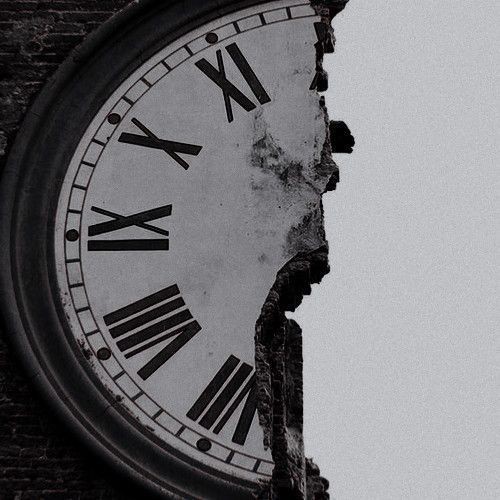
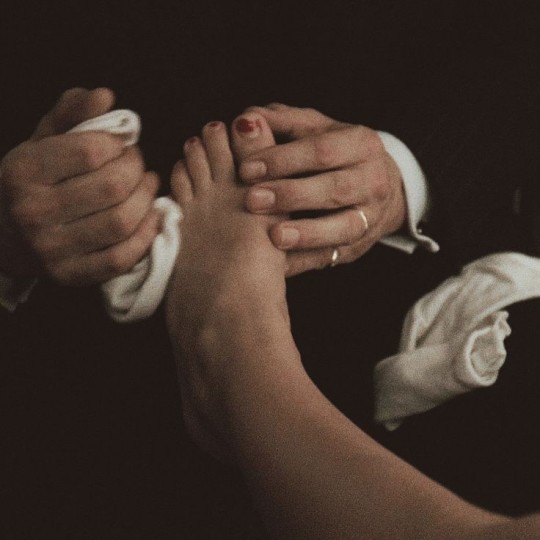
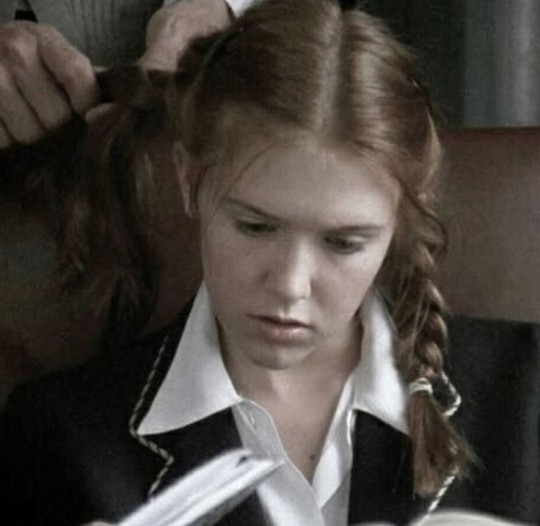


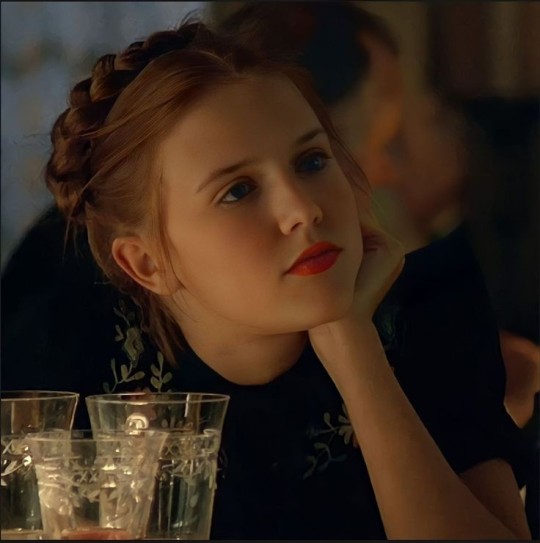


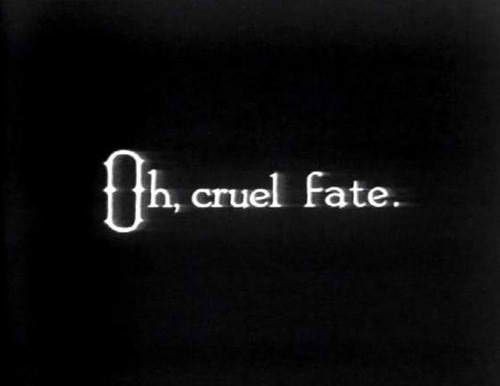
She said: "I'm smart", but he didn't believe, so she proved him wrong.
#vladmir nabokov#classic lolita#lolita nabokov#lolita 1997#stanley kubrick#literature#analysis#lolita
164 notes
·
View notes
Text
This novel delves into themes such love, self-discovery and pursuit of a real purpose in life.
I love how through the friendship between two conflicting characters the Author is able to drag you into an intimate self-discovery of your own spirituality. Balance is where body (Goldmund) and soul (Narcissus) meet. There is no true connection if you don’t embrace both spirit and eros, the first to connect with your innermost self and the second to connect yourself with others.
There is no way to achieve the most complete knowledge without exploring the world around you but at the same time you also need peace, silence and study to focus and know yourself.


“We are sun and moon, dear friend; we are sea and land. It is not our purpose to become each other; it is to recognize each other, to learn to see the other and honor him for what he is: each the other's opposite and complement.”
Hermann Hesse, Narcissus and Goldmund (1930).
380 notes
·
View notes
Text
Norwegian Wood novel follows Tori Watanabe, a college student in Tokyo exploring themes such loss, love and loneliness. It is different from other Murakami’s works since it involves no magical element. The book explores isolation and disaffection.
Here some thoughts about the final chapter - Spoiler Alert 🚨
Toru does not understand where he is, surrounded by many people and scared he decides to stay on the phone. This represents a desire to overcome loneliness and live.
I was always hungry for love. Just once, I wanted to know what it was like to get my fill of it -- to be fed so much love I couldn't take any more. Just once.
- Haruki Murakami, Norwegian Wood
3K notes
·
View notes
Text
The Life Aquatic With Steve Zissou tackles different topics, here are some I personally spotted.
Steve Zissou struggles with nostalgia for past glory days and the research for a new purpose in life.
The crew of Belafonte is a kind of disfunctional family and all members have their own neuroses.
The movie whole highlights the beauty of the ocean and also represents adventure and search for meaning and personal discovery.

The Life Aquatic With Steve Zissou
16 notes
·
View notes
Text

The shadow, 2023 - oil on linen — Daniela Astone (Italian, b.1980)
https://www.daniela-astone.com/
17K notes
·
View notes
Photo
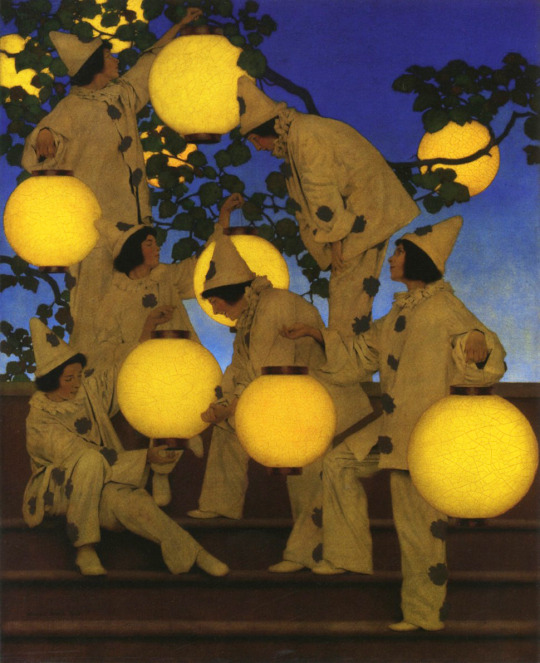
The Lantern Bearers, 1908 by Maxfield Parrish (American, 1870–1966)
7K notes
·
View notes
Text
Kafka on the shore was first published in 2002. The novel follows two characters interweaving apparently disconnected stories. The dream dimension overlaps the real world guiding both characters and the reader towards new stages of awareness.
Magic in this work is the fluid that dissolves the existential doubts of the protagonists, revealing its paths and pushing them to keep moving forward. Forbidden truths finally reveal themselves and so magic makes visible what was not before.
This novel is a coming-of-age both for Tamura Kafka and for the old Mr Nakata. The first advancing towards the future while the second is making a regression, in attempt to return to a certain period of his childhood where he lost something important. An incident in Nakata’s past deprived him of the ability to read and write (both skills in which Tamura excels).
The two characters are more than simple opposites but two communicating vessels. Where one empties the other fills. This quality presents humans as of body and spirit, envelope and content.
Fate plays a major role in this story as well. A co-protagonist whose prophecies are forced to be fulfilled no matter the efforts. The author does not deny free will but the characters themselves choose for this outcome. As Tamura Kafka chooses to fulfill the Oedipal prophecy afflicting him to get rid of it Nakata is dragged into something absurd without making any resistance.
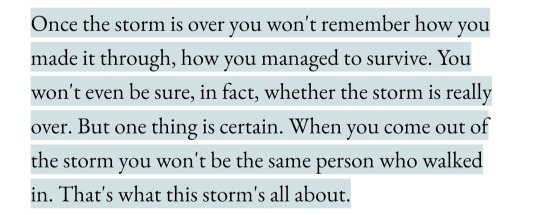
Kafka on the Shore, Haruki Murakami
1K notes
·
View notes
Photo
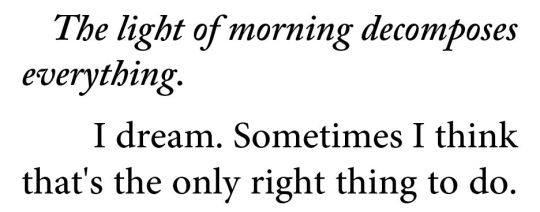

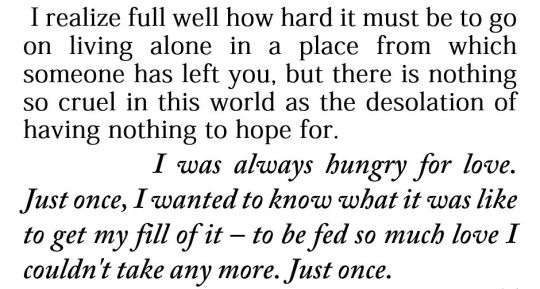
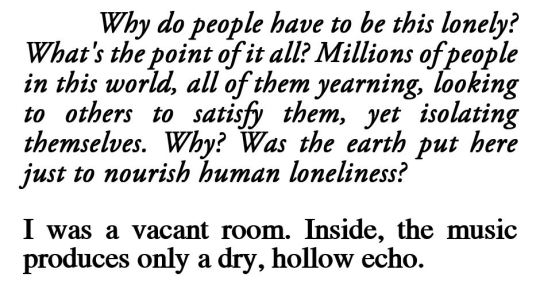

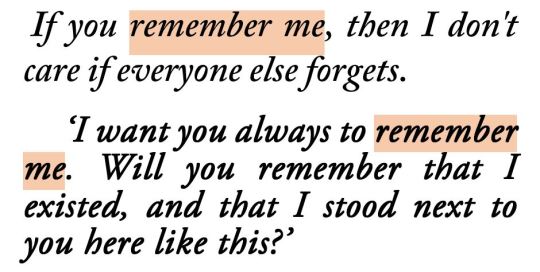

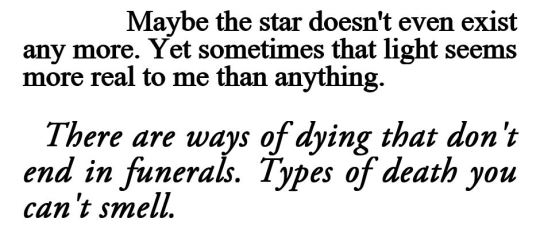
― favorite words of … haruki murakami (part 1)
A Wild Sheep Chase / Sputnik Sweetheart / After the Quake / The Wind-Up Bird Chronicle / Norwegian Wood / Sputnik Sweetheart / The Wind-Up Bird Chronicle / South of the Border, West of the Sun / Kafka on the Shore / Norwegian Wood / 1Q84 / Blind Willow, Sleeping Woman / South of the Border, West of the Sun / Blind Willow, Sleeping Woman
˗ˏˋin case you’d like to buy me a☕ˎˊ˗
6K notes
·
View notes
Text

'The Life Aquatic With Steve Zissou' by Proton Factories.
16" x 20" giclee print, in a numbered limited edition of 75 for $40.
On sale Wednesday December 21 at 12pm ET through Bottleneck Gallery.
26 notes
·
View notes
Text
guy who is fun-ruiningly pedantic about the differences between a labyrinth and a maze
36K notes
·
View notes





